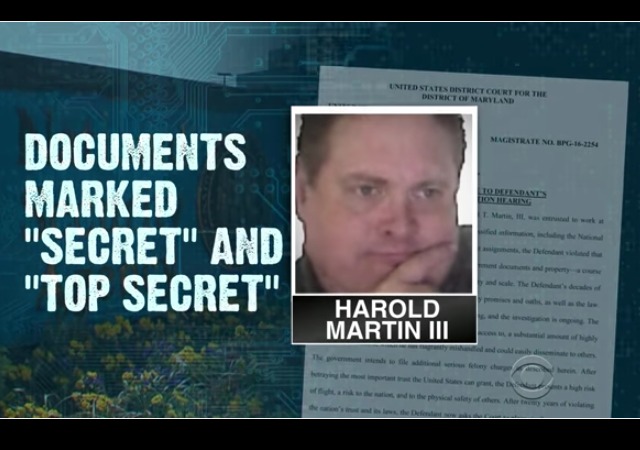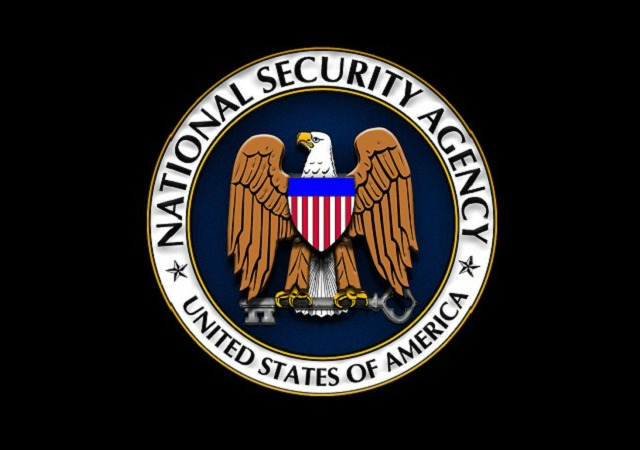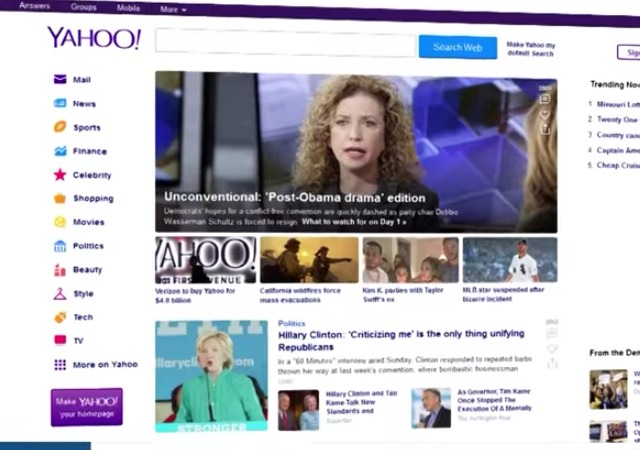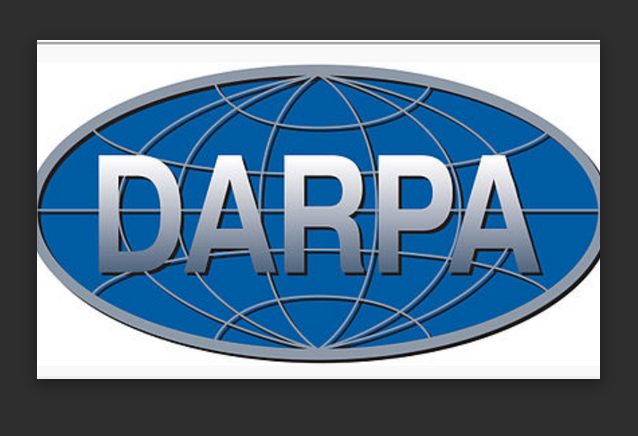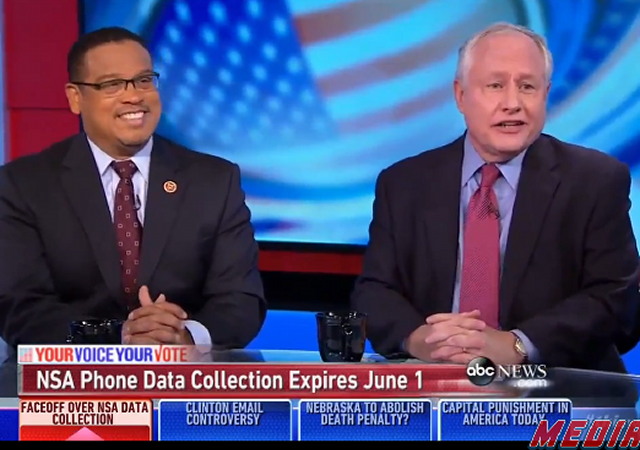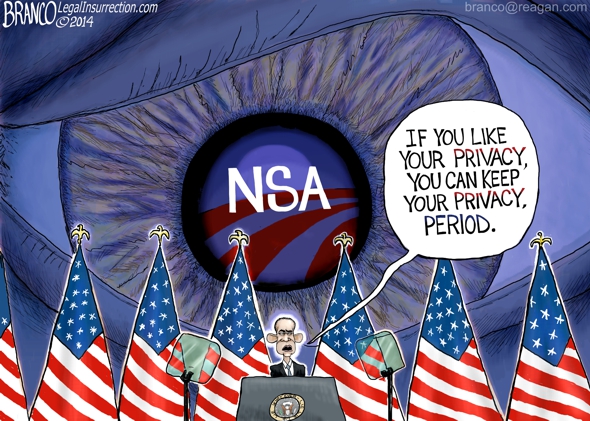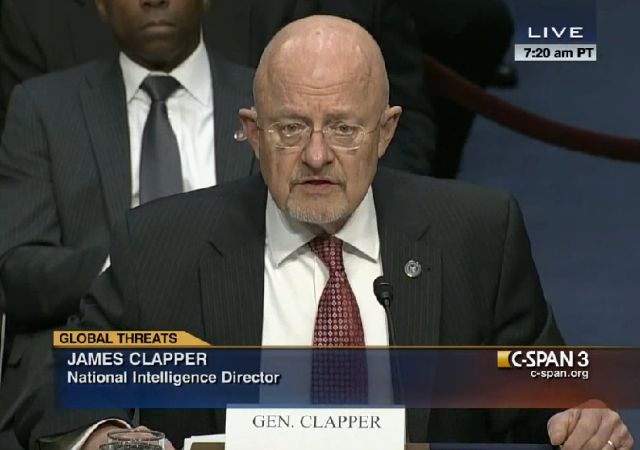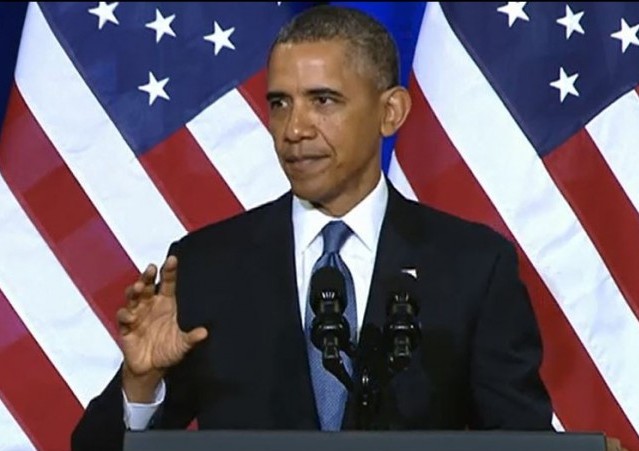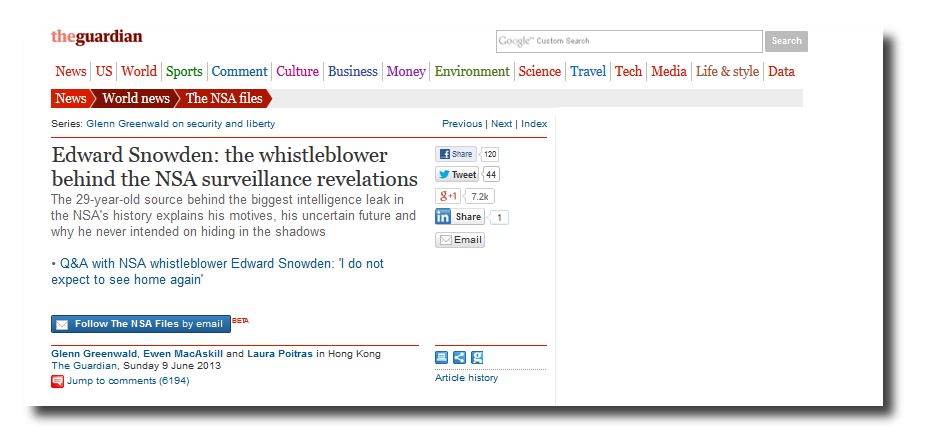NSA Tag
NSA Contractor Arrested, Charged with Removal of Classified Documents
A federal contractor suspected of leaking powerful National Security Agency hacking tools has been arrested and charged with stealing classified information from the U.S. government, according to court records and a law enforcement official familiar with the case. Harold Thomas Martin III, 51, who worked for Booz Allen Hamilton, was charged with theft of government property and unauthorized removal and retention of classified materials, authorities said. He was arrested in August after investigators searched his home in Glen Burnie, Md., and found documents and digital information stored on various devices that contained highly classified information, authorities said.Martin is a "decorated former Naval officer and reservist with a broad interest in cyber issues".
Yahoo! Secretly Scanned Emails for NSA and FBI
Some surveillance experts said this represents the first case to surface of a U.S. Internet company agreeing to a spy agency's demand by searching all arriving messages, as opposed to examining stored messages or scanning a small number of accounts in real time. It is not known what information intelligence officials were looking for, only that they wanted Yahoo to search for a set of characters. That could mean a phrase in an email or an attachment, said the sources, who did not want to be identified.
What If Spying On Social Media Could Save Lives?
Should we build tools to search public records?...
Will Rand Paul’s Position on NSA Hurt His Chances?
Kristol: Liberal Democrats Had Rand Paul’s Policies Before He Did A This Week panel noted that Representative Keith Ellison (D-MN) #standswithRand (sigh) over the NSA’s bulk collection of communications data and criminal justice reform, causing Weekly Standard editor Bill Kristol to call for a point of clarification. “That’s not fair to Keith,” Kristol said. “Rand stands with Keith. Seriously. They had these positions first. Rand Paul has decided that he wants to be a liberal Democrat, undercut necessary intelligence collection and weaken law enforcement services, and Rand Paul thinks that’s going to sell in the Republican primary.Here's the video:
Google, Twitter Fight for Surveillance Transparency
“More and more service providers are issuing transparency reports,” said Kurt Opsahl, an attorney with Electronic Frontier Foundation, whose clients are seeking an end to the letters. “Many would like to say what national security” demands they’re getting. The gag provision violates free-speech rights, U.S. District Judge Susan Illston in San Francisco ruled in March 2013 in a lawsuit brought by a phone-service provider that received such a letter. She put her ruling on hold while the government appeals it. Because recipients of the letters are forbidden from discussing them openly, the identity of the phone company isn’t public.The Justice Department's argument centers on the idea that national security concerns trump the general First Amendment rights of tech companies; they say that if companies are allowed to disclose which agency is looking at what data, terrorists will be able to gain inside information into national security investigations, and thus, that the government has a compelling interest in keeping this information classified. Tech companies' main concerns center on the indefinite nature of the gag order, which is also leaving judges questioning the heart of the Justice Department's argument:
Using old school typewriters will not protect you from snooping
German politicians are considering a return to using manual typewriters for sensitive documents in the wake of the US surveillance scandal. The head of the Bundestag's parliamentary inquiry into NSA activity in Germany said in an interview with the Morgenmagazin TV programme that he and his colleagues were seriously thinking of ditching email completely. Asked "Are you considering typewriters" by the interviewer on Monday night, the Christian Democrat politican Patrick Sensburg said: "As a matter of fact, we have – and not electronic models either". "Really?", the surprised interviewer checked. "Yes, no joke", Sensburg responded.While typewriters might be harder to spy on, they hardly are foolproof, as the U.S. Embassy in Moscow discovered back in the day (1986):
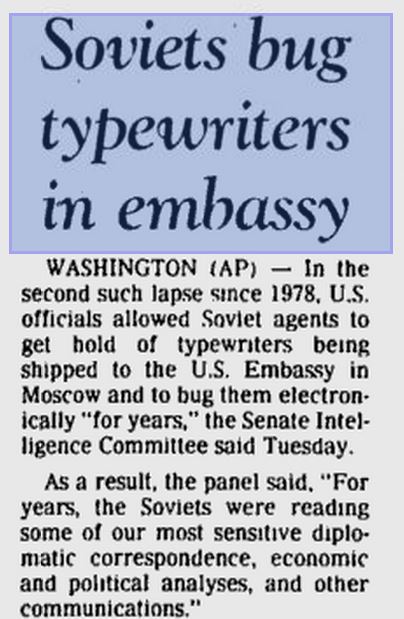 * * *
* * *
 More on the typewriter espionage here:
More on the typewriter espionage here:
Double Spy: Did US spy on German committee investigating US spying?
On whom was Germany's spy spying when US supposedly used that spy to spy?...
You’re not paranoid, the government really is watching you
Nine of 10 account holders found in a large cache of intercepted conversations, which former NSA contractor Edward Snowden provided in full to The Post, were not the intended surveillance targets but were caught in a net the agency had cast for somebody else. Many of them were Americans. Nearly half of the surveillance files, a strikingly high proportion, contained names, e-mail addresses or other details that the NSA marked as belonging to U.S. citizens or residents. NSA analysts masked, or “minimized,” more than 65,000 such references to protect Americans’ privacy, but The Post found nearly 900 additional e-mail addresses, unmasked in the files, that could be strongly linked to U.S. citizens or U.S.residents. The surveillance files highlight a policy dilemma that has been aired only abstractly in public. There are discoveries of considerable intelligence value in the intercepted messages — and collateral harm to privacy on a scale that the Obama administration has not been willing to address.
Clapper: Gov’t should have been transparent about phone record collection
In an exclusive interview with The Daily Beast, Clapper said the problems facing the U.S. intelligence community over its collection of phone records could have been avoided. “I probably shouldn’t say this, but I will. Had we been transparent about this from the outset right after 9/11—which is the genesis of the 215 program—and said both to the American people and to their elected representatives, we need to cover this gap, we need to make sure this never happens to us again, so here is what we are going to set up, here is how it’s going to work, and why we have to do it, and here are the safeguards… We wouldn’t have had the problem we had,” Clapper said. “What did us in here, what worked against us was this shocking revelation,” he said, referring to the first disclosures from Snowden. If the program had been publicly introduced in the wake of the 9/11 attacks, most Americans would probably have supported it. “I don’t think it would be of any greater concern to most Americans than fingerprints. Well people kind of accept that because they know about it. But had we been transparent about it and say here’s one more thing we have to do as citizens for the common good, just like we have to go to airports two hours early and take our shoes off, all the other things we do for the common good, this is one more thing.”It's difficult to know whether or not the American public would have accepted the program as another security necessity. But I'd agree that a more extensive public debate about the general nature of the program probably would have been more productive at the outset.
Debut of The Intercept reveals things we mostly already knew
Sorry folks, but the debut of The Intercept did not meet the hype....
Obama NSA Reform Speech (Video)
First, everyone who has looked at these problems, including skeptics of existing programs, recognizes that we have real enemies and threats, and that intelligence serves a vital role in confronting them. We cannot prevent terrorist attacks or cyber-threats without some capability to penetrate digital communications – whether it's to unravel a terrorist plot; to intercept malware that targets a stock exchange; to make sure air traffic control systems are not compromised; or to ensure that hackers do not empty your bank accounts. Moreover, we cannot unilaterally disarm our intelligence agencies. There is a reason why blackberries and I-Phones are not allowed in the White House Situation Room. We know that the intelligence services of other countries – including some who feign surprise over the Snowden disclosures – are constantly probing our government and private sector networks, and accelerating programs to listen to our conversations, intercept our emails, or compromise our systems. Meanwhile, a number of countries, including some who have loudly criticized the NSA, privately acknowledge that America has special responsibilities as the world's only superpower; that our intelligence capabilities are critical to meeting these responsibilities; and that they themselves have relied on the information we obtain to protect their own people.Whether the "reforms" are meaningful in protecting the privacy of law-abiding Americans is another questions.
Now a split decision on NSA data mining
We reported last week on how Judge Leon in the District of Columbia ruled against the government, preliminarily, on NSA mass data surveillance. I cautioned against the media assumption that the ruling would survive: The judge issued a preliminary injunction, but stayed his decision pending appeal....
NSA surveillance court decision
Sorry, but I have too many other things on my plate right now to dig into this, even though it's clearly an important decision which may eventually make its way to the U.S. Supreme Court. A federal judge in D.C. has found parts of the NSA...
The Guardian has published just one percent of Snowden leak
The Guardian has only published about one percent of the material leaked by former NSA contractor Edward Snowden, according to statements made by the outlet's editor to a British parliamentary committee Tuesday. From the Associated Press via the Washington Post: The editor of the Guardian said Tuesday...
Brazilian spying hypocrisy
I think the Brazilian President is not so much upset that we spy, but that we spy better than her spies spy....
Google, Facebook, Yahoo petition FISA court for increased transparency
Facebook, Google and Yahoo are together putting increased pressure on the government to allow the companies to distinctly identify the number of national security related requests for user data separately from other law enforcement requests. From the LA Times: Technology giants Facebook, Google and Yahoo presented a...
Government to release more NSA surveillance documents in response to FOIA lawsuit
The Electronic Frontier Foundation (EFF) announced on its website today that the Justice Department will release hundreds of pages of documents related to the government's interpretation of Section 215 of the PATRIOT Act, in response to a Freedom of Information Act lawsuit it had filed. From...
Donations tax deductible
to the full extent allowed by law.
CONTRIBUTORS
- William A. Jacobson
Founder
- Kemberlee Kaye
Sr. Contrib Editor
- Mary Chastain
Contrib Editor
- Fuzzy Slippers
Weekend Editor
- Mike LaChance
Higher Ed
- Leslie Eastman
Author
- Vijeta Uniyal
Author
- Stacey Matthews
Author
- Jane Coleman
Author
- James Nault
Author
- Mandy Nagy
Editor Emerita
- Learn more about the Contributors

